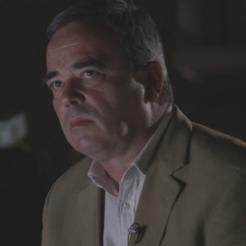Undercover reporters found evidence of potential breaches of sector regulations by telephone fundraising agencies as part of an investigation by the Channel 4 programme Dispatches.
The programme, which is due to be broadcast at 8pm tonight, features NTT Fundraising in Bristol and London-based Pell & Bales.
It reveals instances where the companies were potentially in breach of fundraising regulation.
The Institute of Fundraising’s Code of Fundraising Practice, states that fundraisers must not be a “nuisance” and must be “open and transparent” when asking the public for money. Under the Fundraising Standards Board’s Fundraising Promise fundraisers pledge not to put people under undue pressure to give and to respect decisions not to give.
The FRSB said the issues raised by the programme were of "great concern".
During a fundraising campaign for Great Ormond Street Hospital Children’s Charity, an NTT team leader told one of the undercover reporters posing as a fundraiser to put a woman down as a “soft refusal” after she said she was caring for a terminally ill daughter and did not want to talk about it.
The team leader said: “It will be a soft refusal because you can’t justify getting rid of that record from the data. She hasn’t’ said ‘don’t call me’, she’s just said she doesn’t want to talk about it. I get the same thing on cancer on Macmillan, they say ‘I don’t want to talk about it right now because my husband’s going right through it'. Soft refusal. As much as it feels bad and unethical, it is a soft refusal.”
The programme also shows an NTT supervisor telling a reporter: “Being depressed is not really a get out of jail card.”
It comes after the reporter suggests a person with depression should be taken off the company’s database after saying she had depression and was not able to talk.
Call centre staff were also told that it was okay to lie to potential donors about personal details such as having children, the programme shows.
Dispatches said the programme also features examples of old and vulnerable people, including a man with Alzheimer's, being targeted by other telephone fundraising agencies, not NTT or Pell & Bales.
Alistair McLean, chief executive of the FRSB, said: "The FRSB has not received evidence to suggest that charities have been targeting elderly and vulnerable people through telephone fundraising or indeed any other means.
"However, the issues raised by the Dispatches programme are of great concern and we will be contacting the relevant organisations to discuss those matters and consider whether further investigation or action is required."
Solicitation statements
Dispatches found that both Pell & Bales and NTT told staff to make solicitation statements, which tell potential donors that the call is being made by call centre companies being paid for their services, after people had made a decision to donate.
In the programme, Stephen Lee (pictured), who was director of the IoF from 1987 to 1998 and is professor of voluntary sector management at Cass Business School, says Cabinet Office guidelines state the declaration should be made before the donation is offered.
The Institute’s code says telephone fundraisers must make a solicitation statement during each call under charity law. It does not specify when the statement should be made.
Lee has called for a review of the agencies by the IoF and the FRSB, and a review of the way charity fundraisers are managing their relationships with the private companies that fundraise on their behalf.
Peter Lewis, chief executive of the Institute, said: “With Dispatches not yet having been broadcast, we cannot of course comment on any specific issues until we’ve seen the programme.”
“However, it is of the utmost importance to all charities, and the wider public, that fundraising is conducted in a manner which is legal, open, honest and respectful."
NTT launches investigation
In a statement responding to the programme, NTT said: “We are so proud of what we do and were mortified to see apparent weaknesses highlighted in this report.
“We’ve worked hard to build a reputation for honesty and effectiveness, and of course take seriously any suggestion that we have not lived up to the standards expected by ourselves and our charity partners.
“We have already started an investigation into the material presented and will ensure that we improve any areas found to be lacking.”
Complaints about telephone fundraising increased by 26 per cent to 8,019 last year from 14.4m calls, the FRSB’s latest complaints survey shows. The number of calls rose by 25 per cent.
NTT said it received 100 complaints out of 1.25m calls made in 2013.
Pell & Bales said in a statement it receives less than 1 complaint for every 10,000 calls made.
“The Charities Act does not specify where in the call the solicitation statement should be made,” the statement said. “We believe it is most effectively and clearly delivered towards the end of the call where the supporter still has the option not to make the donation.”
GOSH 'shocked and deeply distressed'
GOSH said in a statement it was “shocked and deeply distressed” by the programme’s findings of “unacceptable behaviour”.
“We expect the highest standards of honesty and integrity from all our fundraisers. We had an extensive on-going training programme and system of checks and balances to ensure NTT Fundraising were behaving properly, treating people with the utmost respect and complying with industry codes of practice at all times,” it said.
“We are incredibly disappointed and as soon as we became aware of the report we stopped all fundraising calls with NTT. With NTT’s full cooperation we have launched a thorough investigation.”









